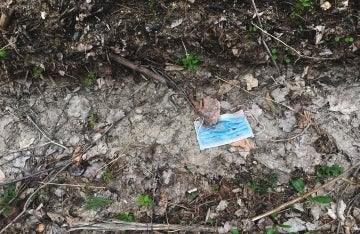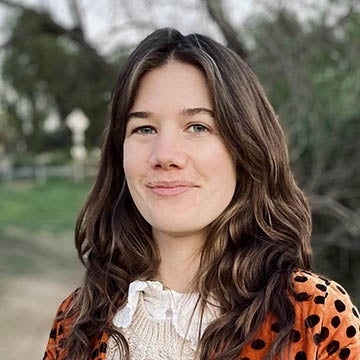
CDCS Colloquium: Frances Corry, University of Pennsylvania
- Annenberg School for Communication, Room 108
"When does a pandemic end? Bounding COVID-19 through rapid response collecting"
Photo Credit: Cate Bligh / Unsplash.
About the Event
During the spring of 2020, in the early months of COVID-19 lockdowns in the United States, popular press outlets discussed how digital documentation would provide a robust record of the pandemic. Articles detailed how numerous archival groups were rallying resources to aggregate diverse digital media–from websites to user-submitted photos–that could one day provide a historical record of that unprecedented moment.
These archival practices can be characterized as “rapid response collecting,” a methodology used by information and history institutions to collect “material culture from major events as the phenomenon unfolds or in the immediate aftermath” (Debono, 2021). However, unlike other American crises for which rapid response collecting had been employed – whether September 11th, 2001, or the Boston Marathon bombings of 2013 – COVID-19 lacked such easily marked temporal boundaries. Instead, the ‘moment’ of COVID-19 addressed in those early articles lasted much beyond the few weeks optimistically projected when lockdowns first began. In the meantime, cultural debates arose over what it meant for the pandemic to end, complicating rapid response collecting’s promise to aggregate materials during or immediately after a significant event.
This talk addresses the cultural ambiguity around the end of the pandemic in the context of rapid response collecting. Through interviews with archivists, librarians and other information professionals who engaged in digital collecting around COVID-19, it reviews how these professionals planned, executed, and ended rapid response collecting around COVID-19; how they grappled with the ambiguous ends of the pandemic through collecting practices; and how these practices may come to shape how COVID-19 is historicized and remembered into the future. The talk offers both theory-driven explorations of how the pandemic has been temporally bounded through the collection of digital media, as well as practical takeaways for collecting documentation as an event unfolds.
About Frances Corry

Frances Corry earned her Ph.D. in Communication at the University of Southern California’s Annenberg School for Communication and Journalism. Her work employs critical-historical approaches to digital technology, with emphases on the prehistories and afterlives of data-intensive systems. Her current major project examines the process of social media platform closure and content deletion to ask about the future of cultural memory.
Research addressing these themes has been published in outlets including Feminist Media Studies, First Monday, Internet Histories, the International Journal of Communication, the Computer Communication Review, and elsewhere. Her work has also been featured in press pieces in The Atlantic, DAZED, and LA This Week.
Corry has collaborated with varying institutions on research projects and research-based creative work. She has received fellowships from Harvard University's Library Innovation Lab, the ACM History Committee, and the USC Center for Science, Technology, and Public Life, worked with computing institutions like the Computer History Museum on their oral history collections, and collaborated with the Los Angeles Public Libraries on the Autograph Book of Los Angeles.
In 2023, she will be joining the University of Pittsburgh as an Assistant Professor in the Department of Information Culture and Data Stewardship, School of Computing and Information.
Events
View AllDisclaimer: This event may be photographed and/or video recorded for archival, educational, and related promotional purposes. We also may share these video recordings through Annenberg's website or related platforms. Certain events may also be livestreamed. By attending or participating in this event, you are giving your consent to be photographed and/or video recorded and you are waiving any and all claims regarding the use of your image by the Annenberg School for Communication. The Annenberg School for Communication, at its discretion, may provide a copy of the photos/footage upon written request.
